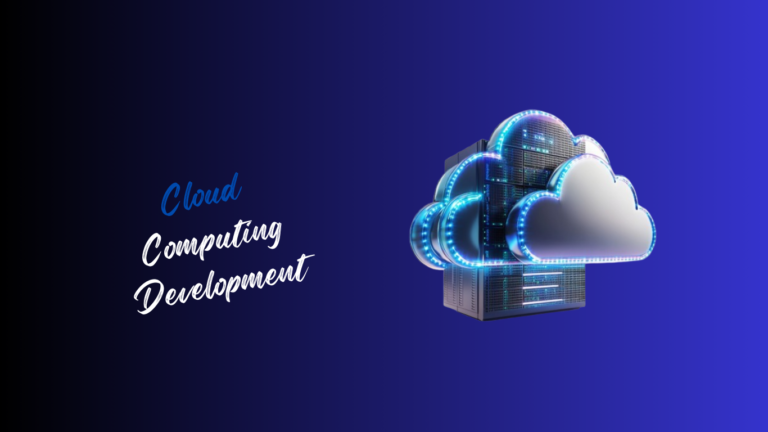Cloud computing has become an essential part of modern business operations, enabling enterprises to scale, innovate, and improve efficiency. As companies increasingly rely on cloud services, leading technology firms continue to push the boundaries by integrating artificial intelligence, enhancing security, and expanding global infrastructure. In 2025, the latest cloud computing developments are transforming the industry, with major providers introducing groundbreaking advancements to meet the evolving needs of businesses across various industries. Below are some of the most significant latest cloud computing developments shaping the future of technology.
Microsoft Unveils AI-Powered Cloud Solutions in Azure
Microsoft has launched a suite of AI-powered cloud computing tools within its Azure platform, designed to enhance automation, streamline data processing, and provide businesses with deeper customer insights. The integration of machine learning, natural language processing (NLP), and predictive analytics allows enterprises to optimize workflows across various industries. By embedding AI into its cloud infrastructure, Microsoft strengthens its position as a leader in intelligent cloud computing, focusing on innovation and scalability.
Amazon AWS Expands with Cloud Infrastructure Startup Acquisition
Amazon Web Services (AWS) continues to dominate the cloud computing industry by acquiring a cloud infrastructure startup specializing in hybrid cloud computing technologies. This strategic acquisition enhances AWS’s ability to provide seamless public and private cloud integration, catering to industries such as healthcare, finance, and retail, where compliance and data privacy are critical. AWS’s expansion highlights its commitment to delivering customized, scalable cloud solutions to enterprises worldwide.
Google Cloud Strengthens Security with Advanced Protection Features
Google Cloud has introduced next-generation security tools to enhance data encryption, real-time threat detection, and identity management. These security advancements help enterprises comply with global data protection regulations such as GDPR and CCPA, ensuring businesses can safeguard sensitive data from cyber threats. By investing heavily in cloud security, Google positions itself as a top choice for companies prioritizing secure and reliable cloud computing solutions.
Oracle Expands Cloud Computing Portfolio with High-Performance Solutions
Oracle has significantly expanded its cloud infrastructure offerings, launching new high-performance computing (HPC), scalable data storage, and cloud-based development tools. These innovations cater to industries that demand speed, reliability, and security, such as finance, healthcare, and manufacturing. Oracle’s latest expansion strengthens its competitive edge against AWS, Microsoft Azure, and Google Cloud, reinforcing its role as a major player in enterprise cloud computing.
Alibaba Cloud Expands Global Reach with New Data Centers
Alibaba Cloud has broadened its global presence by launching new data centers in Europe, providing businesses with faster, more localized cloud computing services. This move aligns with the increasing demand for data sovereignty and regulatory compliance in regions outside China. By expanding its cloud infrastructure footprint, Alibaba Cloud aims to compete with top cloud providers like AWS and Microsoft, securing a stronger position in the global cloud computing market.
IBM Introduces AI-Driven Cloud Solutions for Business Automation
IBM has unveiled AI-driven cloud computing solutions focused on business automation and workflow optimization. These solutions include machine learning models for predictive analytics, automated data processing, and AI-powered customer support tools. Designed for industries with complex data management needs, IBM’s AI cloud services enable businesses to enhance efficiency, streamline operations, and improve decision-making while maintaining high security standards.
Salesforce Enhances AI-Powered Cloud CRM for Customer Insights
Salesforce has integrated artificial intelligence into its cloud-based CRM platform, enabling businesses to automate customer service, personalize marketing campaigns, and predict sales trends. By leveraging AI, Salesforce helps organizations boost customer engagement, improve retention rates, and optimize sales performance. The enhanced AI-driven CRM solution makes Salesforce an industry leader in cloud-based customer relationship management.
Rackspace Technology Focuses on Hybrid Cloud Solutions
Rackspace Technology is shifting its focus to hybrid cloud computing, providing businesses with flexible, scalable cloud infrastructure that balances the benefits of public and private cloud environments. This approach is especially beneficial for regulated industries such as healthcare and finance, where data security and compliance are top priorities. Rackspace’s strategic move highlights the growing demand for hybrid cloud adoption in enterprise IT solutions.
Conclusion
The cloud computing landscape continues to evolve, with leading providers such as Microsoft Azure, AWS, Google Cloud, Oracle, Alibaba Cloud, IBM, Salesforce, and Rackspace making significant advancements in AI-driven automation, hybrid cloud integration, and cloud security. These innovations empower businesses to enhance operational efficiency, improve data protection, and stay competitive in a rapidly evolving digital world. As cloud computing trends shift towards AI optimization and hybrid infrastructures, enterprises must stay ahead by adopting cutting-edge cloud technologies to drive growth and innovation.

